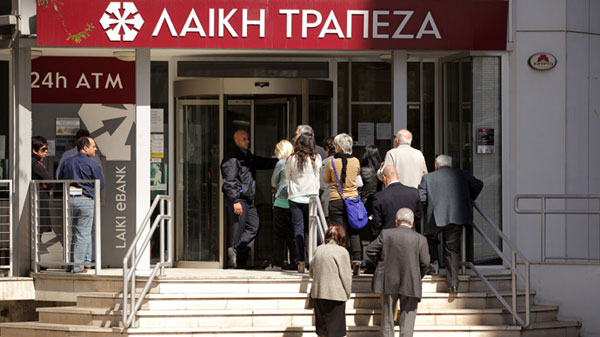The Eurozone farce is a game of pass the parcel… with the “winner” to be left holding the booby prize.
Somebody has to pay the costs of allowing Greece and other troubled member-nations to loot the single-currency system through indulging in profligate lifestyles and speculative real estate booms, accumulating a mountain of debt they cannot afford to repay. But no one is willing to pay…
The populations of the troubled nations are hostile to giving up the advantages they have enjoyed and continue to enjoy such as overpaid public-sector jobs and early retirement, and angry about having to pay higher taxes and suffer cuts in their public services to meet the costs of debts seen as largely benefiting wealthy elites and foreign banks.
The voters of more responsibly-managed member-nations such as Germany, the Netherlands, Finland, are equally hostile to paying to save the irresponsible countries from the painful consequences of their behaviour.
The banks and other financial institutions are using their considerable political influence to avoid facing up to the huge losses that will be involved if they have to “mark to market” their enormous dodgy loans to the governments and private-sector borrowers of the troubled countries.
The European Central Bank, having loaned an enormous amount to private-sector banks – €100 billion to Greece alone – to ward off financial crisis, is terrified of the consequences if such a crisis erupts nevertheless. Not least to its own reputation. And it’s furious about the failure of governments, which have allowed the situation to fester and failed to come up with a solution.
As for the politicians… They are twisting and turning as they seek to dodge the bullets and avoid having to make the hard decisions about who is going to have to pay to clear up the mess.
They cast around for scapegoats (such as the credit rating agencies), seek to hide the scale of the bad debt embedded in European banks and other financial institutions, and now even confess to lying to the public to avoid scaring the horses. No wonder financiers call this a policy of “extend and pretend”.
The core of the developing crisis in the Eurozone is that undercapitalized banks are supporting over-indebted governments by holding (and buying more) of their bonds; those same governments in turn have to support troubled banks; and there is insufficient equity (asset value) in the banking system to meet potential losses, so creditors grow nervous – especially as it becomes clearer that they are going to be forced to carry a significant share of such losses.
The European Central Bank finds itself having to provide liquidity on an open-ended basis to the banking systems of peripheral member-nations, steadily weakening its own balance sheet.
One surprise is that more of the individual investors in the banks of Southern Europe have not already withdrawn their deposits and moved their savings elsewhere. If the owners of capital lose confidence, and start a panicky flight to safety, that would precipitate a European (and global) financial crisis.
Greece is at the centre of the developing storm because it is seen as the country most likely to default on its debt. Its scale is already enormous — €350 billion — and continuing to mount as its government borrows even more to finance current spending, including interest costs, far in excess of revenues.
It cannot afford to pay the rates of interest lenders demand for providing more credit. And its financial circumstances are so extreme that it seems most unlikely it will ever be able to repay outstanding loans when they mature. Barclays Capital estimates that the scale of spending cuts and revenue increases that would be necessary to eliminate the debt problem is three times greater than the maximum that is achievable, economically and politically.
A nation notorious for its corruption, with a public sector bloated with people who got secure jobs because of whom they knew, rather than what they are competent to do, is responding to pressure from Eurozone authorities to reform by making promises they wriggle to avoid delivering on.
So far the austerity being imposed from abroad has cost 250,000 jobs in the private sector, but none in the politically-protected public sector.
Financially Greece is on life support, the only sources of new credit being other Eurozone governments, the International Monetary Fund, and extremely reluctant foreign banks whose arms are being twisted by their governments.
This won’t solve the problem, because it just adds more debt to a debt burden that is already insupportable.
And the crisis is spreading across the Eurozone. What is likely to happen?
CopyRight – OnTarget 2011 by Martin Spring







